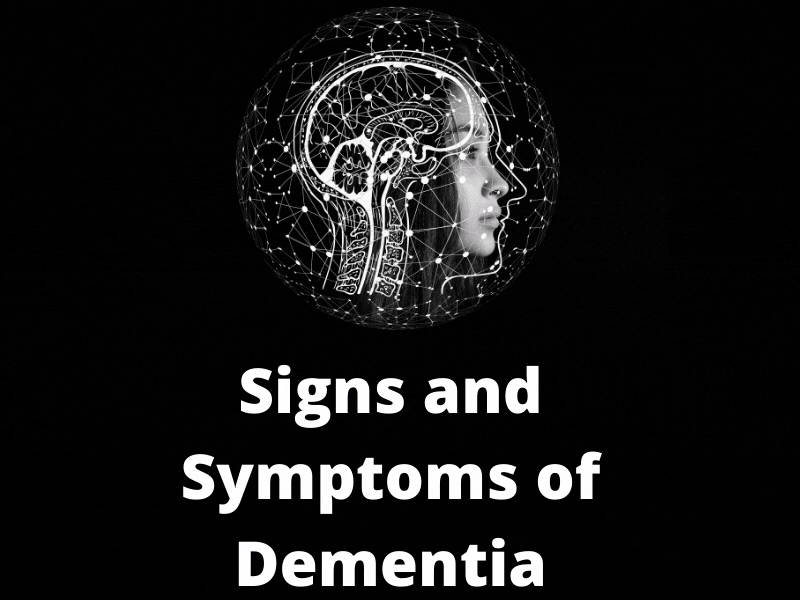Since dementia is an umbrella term that encompasses various medical conditions and diseases, many of the signs and symptoms associated with dementia are specific to certain types of dementia. That said, there are some early symptoms that appear across the board, namely memory loss, mood changes, difficulty concentrating, confusion about time and place, struggling to find words or follow conversations, and difficulty carrying out familiar everyday tasks.
Signs and symptoms of Alzheimer’s disease include memory loss that’s disruptive in everyday life, difficulties planning and solving problems, challenges in completing simple daily tasks, confusion with time and place, trouble understanding spatial relationships and visual images, trouble with words when speaking and writing, misplacing things and being unable to retrace steps to find them, mood and personality changes, withdrawing from work and feeling less interested in social obligations, as well as poor judgment.
Signs and symptoms of vascular dementia include confusion, disorientation, difficulty walking, poor balance, trouble speaking or understanding speech, paralysis or numbness on one side of the body or the face, and physical stroke symptoms like sudden headaches. Typically speaking, these are more noticeable when the onset of vascular dementia is the direct result of a major stroke.
Signs and symptoms of Lewy body dementia include changes in thinking and reasoning, varying levels of confusion and alertness throughout the day or from one day to the next, delusions and visual hallucinations, sleep disturbances, significant memory loss, autonomic nervous system dysfunction, trouble interpreting visual information, slowness and unsteady gait, as well as other movement-related features of Parkinson’s disease.
Signs and symptoms of Parkinson’s disease dementia look very similar to those of Lewy body dementia, which suggests a link between the two, specifically the underlying abnormalities in the brain processing of the protein alpha-synuclein. The signs and symptoms that look similar include delusions, visual hallucinations, trouble interpreting visual information, sleep disturbances, and changes in memory. Dissimilar signs and symptoms include anxiety, irritability, muffled speech, depression, and changes in concentration and judgment.
Signs and symptoms of Creutzfeldt-Jakob disease include agitation, apathy, mood swings, depression, disorientation, difficulty walking, muscle stiffness, involuntary jerky movements, twitches, vision problems like hallucinations and double vision, rapidly worsening confusion, and problems with thinking and memory as well as planning and judgment. Symptoms vary greatly from one person to the next and sufferers of Creutzfeldt-Jakob disease can experience them in very different orders.
Signs and symptoms of normal pressure hydrocephalus include difficulty walking, loss of interest in daily tasks and difficulty completing said tasks, forgetfulness, and short-term memory loss, a noticeable decline in critical thinking skills, personality and behavioral changes, poor planning and decision-making, apathy and reduced concentration, as well as the loss of bladder control.
The defining symptom of Huntington’s disease is uncontrolled movement of the face, the head, the arms, the legs, and the upper body. Other signs and symptoms include decreased thinking and reasoning skills, loss of memory, poor judgment and concentration, difficulty planning and organizing, alterations in mood, anxiety and depression, irritability and anger, as well as obsessive-compulsive behavior.

